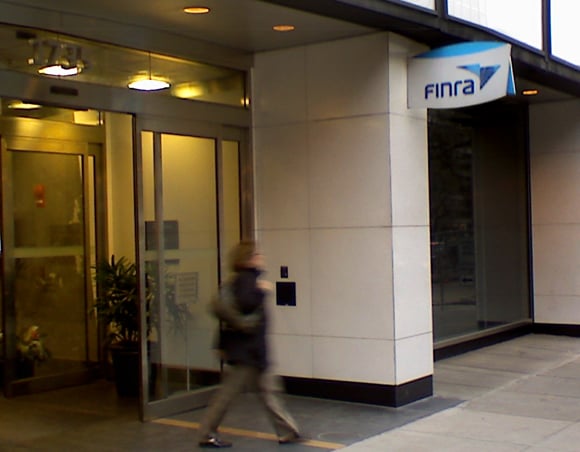The nation's largest business organization wants Finra and other self-regulatory organizations to be more transparent and accountable for their actions.
In a
report released today, the U.S. Chamber of Commerce said that the Dodd-Frank financial reform law failed to address problems at the Financial Industry Regulatory Authority Inc. and other SROs.
SROs are immune from transparency and due-process rules that apply to agencies such as the Securities and Exchange Commission, according to the report.
“A nongovernmental organization making determinations and judgments about the policies and practices of private enterprises should be required to provide meaningful and prompt opportunity to challenge or appeal,” the chamber report states.
In addition to Finra, the chamber cited Institutional Shareholder Services Inc., the Financial Accounting Standards Board and the Public Company Accounting Oversight Board as wayward SROs.
The chamber criticized Finra for having a board comprising a “majority of independent directors with limited or no experience working for a financial services firm,” instead of one made up of financial industry representatives. It also asserted that Finra members “no longer have a meaningful role in establishing policies and priorities.”
“Transparency into Finra's governance, compensation and budgeting practices is extremely limited and superficial,” the chamber report states. “Furthermore, Finra is not subject to the Freedom of Information Act or the [Administrative Procedure Act], nor is it required to conduct a cost benefit analysis when it engages in rulemaking or exercises its policymaking functions.”
Finra and other SROs are becoming more like government regulators without the safeguards, said Michael Ryan Jr., senior vice president and managing director of board services at Corporate Board Member, a company that provides information resources to those serving on such boards.
“The concern is that the self-regulation has changed dramatically and the ‘self' has been removed,” Mr. Ryan said following a chamber event today just two days short of the first anniversary of Dodd-Frank enactment. “Yet traditional checks and balances around government agencies have not been introduced to the private regulators.”
For instance, the SEC is overseen by committees in the House and Senate, subject to certain requirements when it proposes regulations, must respond to Freedom of Information Act requests and is governed by a five-member bipartisan commission.
Even though Finra must report to the SEC, that oversight is not sufficient, according to Mr. Ryan.
“It's a branch office that doesn't have to go before Congress,” he said. “It doesn't have to comply with the APA. It doesn't have to do cost benefit analysis.”
Finra declined to comment on the chamber report.
Finra points to its majority-independent board, its annual report that reveals executive salaries, its move to allow all-public arbitration panels and its publication of board meeting agendas and post-meeting reports as examples of its transparency efforts.
Although the chamber report calls for reforming the practices of SROs, it does not necessarily signal business community opposition to creating more of them, such as one to regulate investment advisers.
“I don't have a strong view one way or the other whether there should be more SROs or fewer SROs,” Mr. Ryan said. “If you have those SROs acting as government regulators, they need to have checks and balances in place.”
The chamber report also urged reform of the SEC. It said the agency must upgrade its technology and improve its internal operations.
“With a coherent strategy and investment in technology, the agency could substantially leverage its already significant investment in human capital,” the report states. “A greater focus on micro- and macroeconomic data and analytical analysis could dramatically improve the identification of troubling trends and reduce response times.”
The SEC maintains that it lacks the funding to make significant technology improvements. The agency's budget was frozen at its fiscal 2011 level — $1.185 billion — in the fiscal 2012 spending bill recently approved by the House Appropriations Committee. That's $222 million less than the Obama administration request, which the SEC says it needs to perform its market governance functions and implement Dodd-Frank.
The chamber said that the SEC should change its spending priorities rather than get more funding.
“Simply allocating more money to the problem is not the solution,” the chamber report states. “Indeed, the SEC's budget has increased 300% since 2000, but serious operations challenges persist.”
An SEC spokesman did not respond to a request for a comment on the chamber report.







